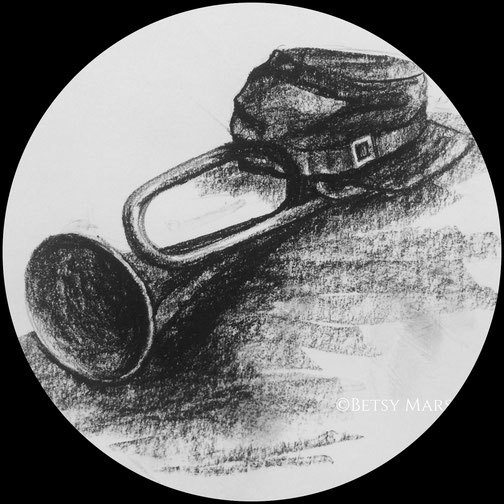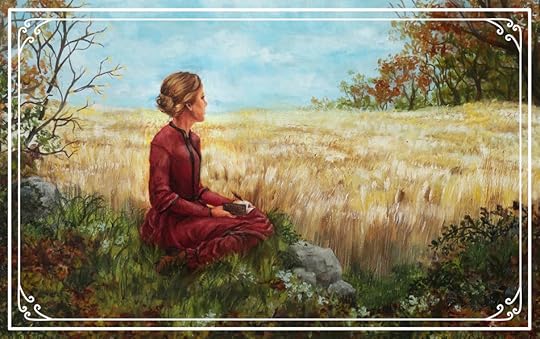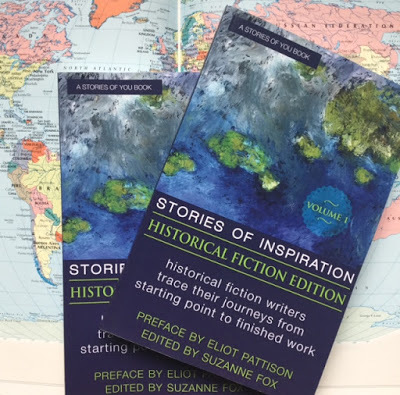Cindy Rinaman Marsch's Blog: The ROSETTE Journal Blog
July 3, 2017
Everybody Loves the Hero Who Breaks Out of the Expected Mold: An Interview
For the excellent new blog Academia, Joshua Grasso, Professor of English at East Central University in Oklahoma, asks
some wonderful questions about my adventure turning Rosette's journal and other historical records into novels and a short story about this fascinating pioneer family.
"We think, 'Oh, how constrained she was! If only she could have . . . ' But how much do we fall into patterns today based on what our families have done, based on our socio-economic
situation, based on our educational opportunities or lack of them? Everybody loves the hero who breaks out of the expected mold. But when it comes down to it, most of us find ourselves in some
expected molds."
Read more here . . .

Check out the Academia Blog!
May 24, 2017
ROSETTE Reviewed in "Discovering Diamonds: Independent Reviews of the Best in Historical Fiction"

"A wonderful snapshot into a lost world."
I am honored to have been reviewed by this solid organization that gives attention to both independent and traditionally-published work. New to the blog world in 2017, Discovering Diamonds: Reviews of the Best in Historical Fiction gathers the reviewing expertise of
many with long experience in a beloved genre. Their almost-daily postings of reviews will keep fans busy with exciting new reads. Click through to subscribe yourself!
April 13, 2017
An Excerpt from Solomon Ramsdell: A Novel of the Civil War Era
Members of my Readers List will get excerpts as I work on my next novel, about Rosette's brother Solomon, surely one of the most appealing
characters in Rosette: A Novel of Pioneer Michigan. Join the Readers List yourself to get previews as the pages unfold . . .
In this portion, Solomon has recently been captured in the battle of Trevilian Station and is on a train bound for the notorious Andersonville prison in Georgia. If you're an expert in this slice
of history, I invite your comments and corrections. I've done a good bit of research but need to dive deeper for some logistics and geography.
The rumbling train carried the weary, stinking prisoners from summer-sweltering Virginia into the depths of the
South. It carried them away from the rich farmlands and dark woods they’d known in their Northern homes, from hills and cool streams, first over mountains, then further into flatlands. Deep shade
of hardwoods gave way to hard red clay and scraggly stands of pine. The intense late-June heat was relieved only by the slight breezes of the train’s movement across the landscape. The sun
leaned closer down upon them, and though the land seemed dry and brittle with all its pine straw and pale earth where clay became sand, nevertheless an oppressive washday steam clogged the men’s
airways. They gulped and threw open their collars for air they nearly had to drink to get down.
Solomon closed his eyes against the yellow fireball hung just outside the train window, and the flickering shadows of
pines crossed his eyelids. The open window let in ashes and soot with the fine orange dust that crept up his nose and settled gritty on the backs of his hands. Sodden air hung close to them,
sealing the sweat that gathered on their skin but could not dissipate.
When the train finally stopped, the men, soaked and sluggish, could barely move. Packed in close together, they had
only distant thoughts of hunger that were shouted down by their longing for the tinny warm water passed around in a bucket. The train roar stilled now, and screaming cicadas shrilled their
pulsing beat. The platform was new-sawn planks, the landing place for prisoners, with no bustle of ordinary commerce—there was no hurry. Prisoners could wait while Confederate officers and
soldiers took their slow time with arrangements. Ears ringing with the sounds of the insects, the men waved away the mosquitoes and gnats that poured into the windows, and squabbles broke out
about whether to close the windows or keep them open—all was misery. Just to get out, to walk a bit, would be heaven, Solomon thought. But his mind would not rouse itself to consider the
prospects.
After an hour or two the doors were opened and the men filed out with their poor packs of this and that—whatever
memento or tool a man thought might come in handy in faraway enemy confinement, clutched compulsively as he was taken into custody. Solomon pulled on his cap, felt for his cup and slit-handled
spoon on his belt loop, and adjusted his rolled blanket tied with short ropes. His precious leather saddlebag with its long strap across his shoulder held treasures he hoped would be of use in
the days and weeks—surely not months—to come.
The man before him in the aisle had to grip the seat-backs to pull himself forward, and Solomon realized he had
not cared to know his fellows on this journey beyond a hooded-lid nod to his own men captured with him. Each had his own nightmare to endure. They would form up again in the camp, as they’d been
trained.
The stumbling man hesitated at the steps, and Solomon squatted to help support him on the way down, grasping him
under the arms. The man’s legs bent beneath him as he reached the platform, and the soldier supervising their movements eyed him until another prisoner reached out to take the man’s arm blindly
reaching out for help.
Most were stirred to a little liveliness by the change, and they stood in ranks as bidden, then more-or-less marched
down the steps and along a curving dirt road that became a dust cloud along their way with their shuffling feet. Modest hills gave way to the town nestled among them in one
direction—Andersonville, Georgia, they said. The final small summit revealed Camp Sumter, a vast clearing surrounded by two levels of wooden fencing—a palisade—with guard towers on the corners
and along the walls, and a platform for the guards to walk as they inspected their charges. A glimpse of the prison ground itself showed throngs of men milling about, some in a line, with a few
cooking fires sending tendrils of smoke into the air. The summer sun was approaching its reddened bed in the west, retreating from the enclosure where gloom was already gathering around the
captives.
. . .
 A bugle and cap such as Solomon might have used in his war service - illustration by Betsy Marsch, for the paperback version of Rosette
A bugle and cap such as Solomon might have used in his war service - illustration by Betsy Marsch, for the paperback version of Rosette
March 24, 2017
Bloomer-Curious?

A Clue on the Cover
Have you studied the gorgeous painting that Betsy Marsch did of the Rosette we imagined, based on photos of
Rosette's brothers and clues in her journal? If you look closely, you'll see she's wearing bloomers. If you read the novel, you'll find out Rosette's curious history with bloomers. And if, at the end of the novel, you use the link to sign up for the list "After Rosette," you'll
learn even more about the middle-aged Rosette's political opinions and bloomer opinions!
The History of Bloomers
In History Imagined, Becky Lower tells the history of this curious garment and its place
in women's history. In April 2016 this blog featured an interview with Rosette, in which "she" tells more than is
in the novel - regarding her bloomers.
February 27, 2017
Deborah Lawrenson on Stories of Inspiration: Historical Fiction Edition
Deborah Lawrenson, British author of the novel The Lantern, writes a brief review of Stories of
Inspiration: Historical Fiction Edition in her blog, here: "Historical Fiction Anthology." My story behind Rosette's story appears as one chapter in this collection
describing a number of notable and new works.

February 12, 2017
Awarded the Awesome Indies Seal of Excellence
"A poignant and compelling novel that hangs together like a vintage patchwork quilt."
Rosette was first awarded the Awesome Indies Badge of Approval in May, and with additional review has been awarded the more prestigious Seal of
Excellence. Click here to read the notice and brief review on AwesomeIndies.net.

February 1, 2017
I Had a Seat at Sophie Schiller's Historical Fiction Roundtable!
 Nuragic warrior sandstone sculpture. Photo ©2009 DedaloNur
Nuragic warrior sandstone sculpture. Photo ©2009 DedaloNur
I was asked to answer a series of fascinating questions about historical fiction, and my answers appear with those of several other authors from around the English-speaking world on Sophie Schiller's Historical Fiction Round Table.
Click the link above or the photo of the handsome Mont'e Prama Giant to read what I have to say about him and about dinner with Benjamin Franklin. You could also get some great recommendations
from writers about THEIR favorite writers . . .
"History is about ordinary people living their ordinary lives, just as we do today, while all around the world is changing. It makes heroes out of some
people and victims out of others."
--Vicky Adin, one of the roundtable authors
December 9, 2016
New Release! Stories of Inspiration: Historical Fiction Edition

I began working with Suzanne Fox of Stories of You Books this summer,
beginning with proofreading/editing of
Stories of Inspiration - Mystery Fiction Edition. It was fascinating to read the backstory of several successful mystery writers' works, and to get to know those authors better through
these personal glimpses.
Then Suzanne asked me to contribute a chapter to the
Historical Fiction Edition, and I was delighted to tell about Rosette's journal and its power to inspire my first novel.
As I worked on proofreading the riveting first volume of
The Mentor That Matters, Suzanne said she needed more male contributors, so I recommended some fascinating men I know - thus my husband Glenn Marsch has contributed a chapter about his mentor in
toxicology research and my brother Chris Rinaman has a chapter about a jazz musician who inspired
him in college. A friend has been commissioned to contribute a chapter for Volume 2, so stay tuned!
This trio of books launched just this week in Vero Beach, Florida, and all are available through Amazon and other outlets. Use the links below and in the text above to learn more about these
books - I'm happy to answer questions.
[image error]
 Stories of Inspiration: Historical Fiction Edition
Stories of Inspiration: Historical Fiction Edition [image error]
 The Mentor That Matters: Inspiration from Transformative Teachers, Role Models & Heroes
The Mentor That Matters: Inspiration from Transformative Teachers, Role Models & Heroes 
Moraine's Edge Books: Editing Services by Cindy Rinaman Marsch
November 18, 2016
British Novelist Jane Davis Interviews Me

I first became aware of Jane Davis as I was beginning this publishing venture, and her covers and website really drew me in. I have since read her excellent new title My Counterfeit Self and look forward to reading more of her work. Jane asks great questions, and I hope you
enjoy my answers. We share an admiration for the fictional character Olive Kittredge, mentioned in the
interview.
Click here or on Jane's picture to read on . . .
"Like Laura Ingalls Wilder, but for grown-ups!”
Who can resist a found antique journal, its original wedding-day entry edited in pencil to tell a different story? Who indeed?
British Novelist Jane Davis Interviews Me

I first became aware of Jane Davis as I was beginning this publishing venture, and her covers and website really drew me in. I have since read her excellent new title My Counterfeit Self and look forward to reading more of her work. Jane asks great questions, and I hope you
enjoy my answers. We share an admiration for the fictional character Olive Kittredge, mentioned in the
interview.
Click here or on Jane's picture to read on . . .
"Like Laura Ingalls Wilder, but for grown-ups!”
Who can resist a found antique journal, its original wedding-day entry edited in pencil to tell a different story? Who indeed?
The ROSETTE Journal Blog
Cindy Rinaman Marsch ...more
- Cindy Rinaman Marsch's profile
- 58 followers



